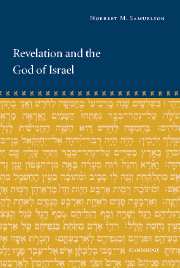2 - The God of the philosophers
Published online by Cambridge University Press: 22 September 2009
Summary
If what the Bible says is not literally what it means, how are we to decide what it means? For the rabbis the parameters of interpretation were set by the following affirmations. First, what it says is true. Hence, any interpretation that is not true is not a correct interpretation. Second, what it says makes intelligible the presumed facts that (a) the deity who revealed himself to the nation Israel's ancient patriarchs – Abraham, Isaac, and Jacob – is the creator of the world, and (b) the world he created is intended by him to become redeemed by means of the religio-political system revealed in the words of the Torah, which (c) he gave to the nation Israel by means of his prophet, Moses. Third, the words of all the other prophets in the Bible are also the words of the same God who revealed the Torah to Moses. Hence, what they say is consistent with what the Torah says.
THE RABBINIC TURN TO PHILOSOPHICAL COMMENTARY
Any interpretation of the Bible that does not contradict the above limits on meaning may be what the Torah in truth says. However, more than one set of interpretations, some of which are not consistent with others, are possible. Hence, logic (which enables us to distinguish what is possible from what is impossible) alone is not enough to determine what God's words mean.
- Type
- Chapter
- Information
- Revelation and the God of Israel , pp. 22 - 41Publisher: Cambridge University PressPrint publication year: 2002



